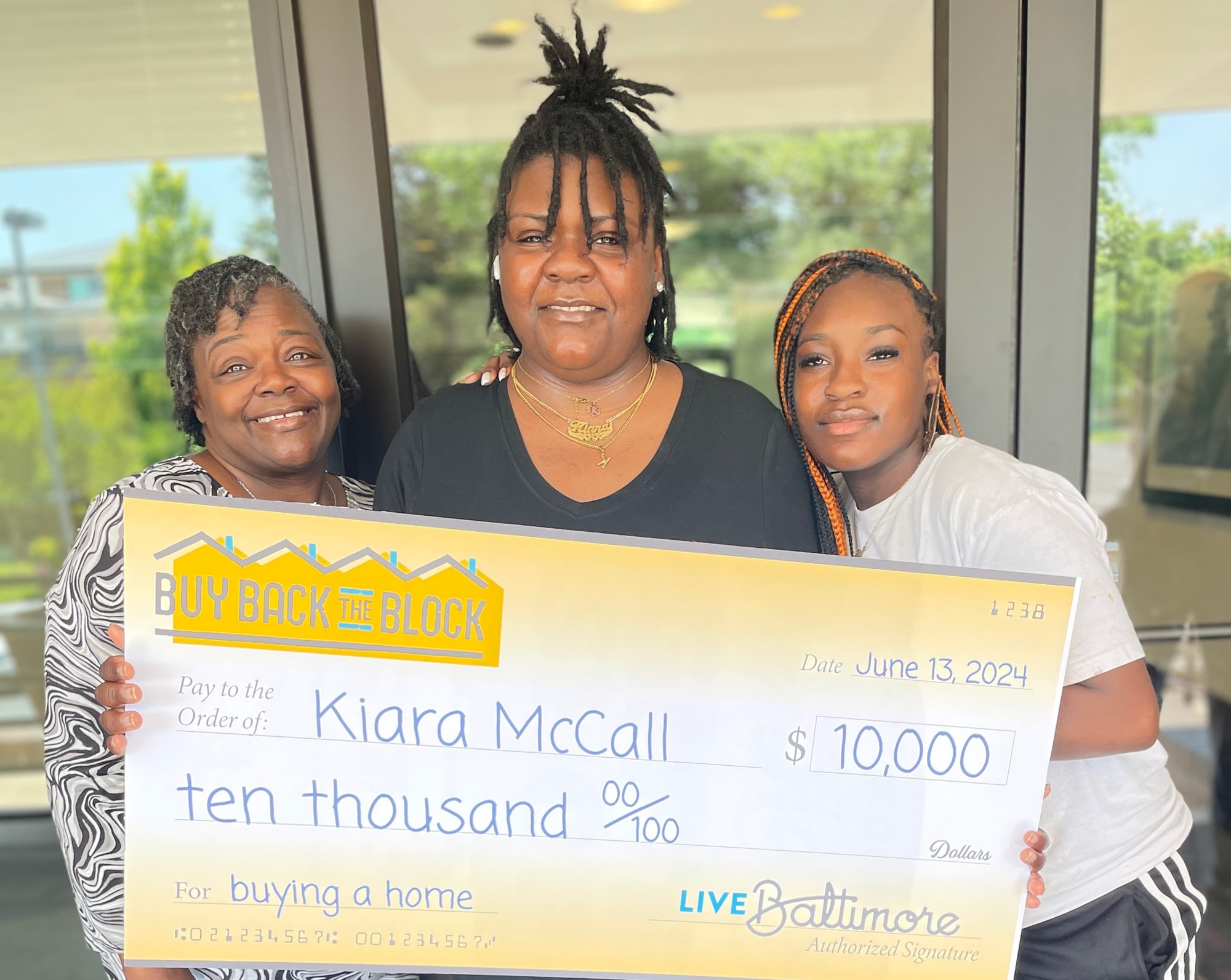MarylandBaltimore
See how Baltimore performed on our equity assessment of its ARPA Local Fiscal Recovery Fund investment strategy.
Total Equity Focused ARPA Funds
$272,255,293$272,255,293
Overall Score
High
Featured Case Study
Baltimore, Maryland allocated $3 million in ARPA funds to launch Buy Back the Block, a down payment assistance program designed to prevent displacement and increase the housing and financial stability of renters in majority-Black neighborhoods.

ARPA Equity Assessment of Baltimore, MD
Overall Equity Focus
 High
HighWas racial and economic equity an explicit focus of the jurisdiction's ARPA investment strategy?
 95% of locations met this criterion.
95% of locations met this criterion. 81% of locations met this criterion.
81% of locations met this criterion. 86% of locations met this criterion.
86% of locations met this criterion.Equity Decision Making Tools and Resources
 High
HighAre equity tools, frameworks, and structures in place to support equitable investment project identification, design, and implementation?
 38% of locations met this criterion.
38% of locations met this criterion.The City of Baltimore structured their investment decisions to ensure four historically underserved communities benefit from ARPA funds: 1) housing insecure; 2) Black and Brown communities facing public health challenges; 3) low-income families, children, and youth that experienced disproportionate negative economic impacts or learning loss; and 4) small, minority, and women-owned businesses.
 24% of locations met this criterion.
24% of locations met this criterion.In 2018, the City mandated an annual Equity Report and required an equity assessment of every capital project.
 31% of locations met this criterion.
31% of locations met this criterion.The Mayor's Office of Broadband and Digital Equity leverages a Digital Equity Framework to guide decision-making.
 51% of locations met this criterion.
51% of locations met this criterion.In 2021, Mayor Brandon M. Scott appointed the first Chief Equity Officer, who is also Director of Baltimore’s Office of Equity and Civil Rights.
 31% of locations met this criterion.
31% of locations met this criterion.The Baltimore City Office of Information & Technology (BCIT) Office of Broadband and Digital Equity (BDE) applies an equity lens to ARPA investment decisions. With support from the Baltimore Neighborhood Indicators Alliance, BDE incorporated data points from the Maryland Digital Equity Score Index Mapping Tool into an internal GIS map to capture several key data indicators to plan broadband-related projects.
 48% of locations met this criterion.
48% of locations met this criterion. 72% of locations met this criterion.
72% of locations met this criterion. 38% of locations met this criterion.
38% of locations met this criterion.Community Engagement
 High
HighDid the jurisdiction engage community members in decision making about the ARPA funds, conduct targeted outreach to historically excluded communities, and implement strategies to reach underserved communities?
 94% of locations met this criterion.
94% of locations met this criterion. 64% of locations met this criterion.
64% of locations met this criterion. 54% of locations met this criterion.
54% of locations met this criterion.Equitable Labor Practices
 High
HighDoes the jurisdiction use best practices for ensuring public investments deliver family-supporting jobs to residents who have faced barriers to good jobs and economic prosperity?
 36% of locations met this criterion.
36% of locations met this criterion. 16% of locations met this criterion.
16% of locations met this criterion. 70% of locations met this criterion.
70% of locations met this criterion. 29% of locations met this criterion.
29% of locations met this criterion. 11% of locations met this criterion.
11% of locations met this criterion.Equity Investments
 High
HighDid the jurisdiction make investments that have the potential to advance equity by targeting the communities most harmed by the pandemic and addressing systemic inequities?
 62% of locations met this criterion.
62% of locations met this criterion. 71% of locations met this criterion.
71% of locations met this criterion. 64% of locations met this criterion.
64% of locations met this criterion. 82% of locations met this criterion.
82% of locations met this criterion. 63% of locations met this criterion.
63% of locations met this criterion. 81% of locations met this criterion.
81% of locations met this criterion. 45% of locations met this criterion.
45% of locations met this criterion. 33% of locations met this criterion.
33% of locations met this criterion. 32% of locations met this criterion.
32% of locations met this criterion. 64% of locations met this criterion.
64% of locations met this criterion. 64% of locations met this criterion.
64% of locations met this criterion. 31% of locations met this criterion.
31% of locations met this criterion. 67% of locations met this criterion.
67% of locations met this criterion. 56% of locations met this criterion.
56% of locations met this criterion. 50% of locations met this criterion.
50% of locations met this criterion.Transparency & Accountability
 High
HighDoes the jurisdiction set performance goals, collect data to monitor progress toward equitable outcomes, and provide the public with information about how funds are being used?
 55% of locations met this criterion.
55% of locations met this criterion. 70% of locations met this criterion.
70% of locations met this criterion. 64% of locations met this criterion.
64% of locations met this criterion. 75% of locations met this criterion.
75% of locations met this criterion.